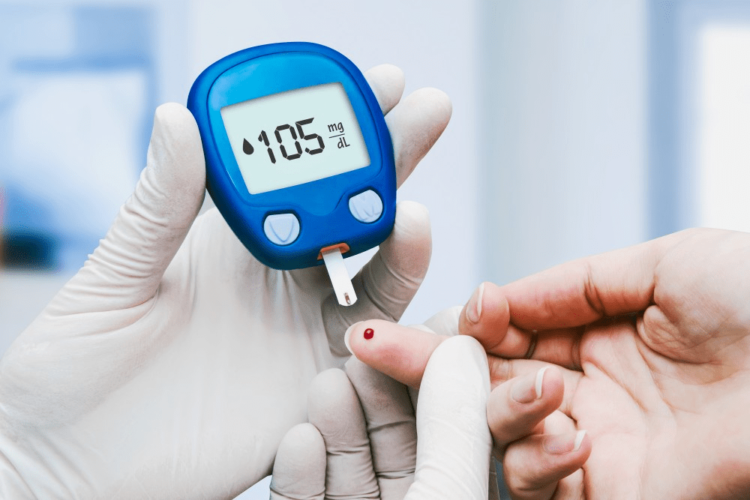The summer months are stressful for everyone, but diabetes makes it even more difficult because it causes the body to struggle with extreme heat and humidity. Diabetics are particularly susceptible to high temperatures and humidity. Hot summers increase the risk of heat exhaustion and make it more difficult for diabetics to maintain regular blood sugar levels.
Temperatures exceeding 80°F (approximately 27°C), especially when combined with high humidity, can have an impact on diabetic prescriptions and testing supplies.
So, when the weather heats up, keep a close eye on Blood Sugar Levels (BSL) and look for signals that the body isn’t handling the heat well, and take appropriate action before things get severe.
Reasons why the summers could affect diabetics more than others
- Dysfunctional sweat glands
Consistently high blood sugar levels typically in diabetics, can damage blood vessels and nerves. Almost every organ in the body is affected by high blood sugar including the sweat glands. Ineffective sweat glands are unable to cool the body effectively. This condition worsens with humidity since humidity slows down evaporation, further affecting the body’s ability to remain cool. Hence, diabetics are more susceptible to high temperatures and humidity.
- Frequent urination
Another problem with diabetes that contributes to dehydration is frequent urination. This is because too much sugar in the blood overworks the kidneys. When kidneys fail to perform the function, the excess glucose is pushed out of the body through urine which too poses a high risk of dehydration.
- Diuretics
Diabetics with blood pressure are often prescribed diuretics to control the Blood Pressure (BP). Diuretics prompt the kidneys to release sodium which triggers urination, effectively flushing out excess fluids from the veins, which although helps control the BP but simultaneously, it can also lead to dehydration.
- Insulin response
High ambient temperatures result in a greater insulin peak effect, i.e. the time when insulin effectiveness is at its highest and the duration of its action compared to low ambient temperature. So, patients with type 1 diabetes mellitus in places with higher environmental temperatures, with or without high humidity, might experience more hypoglycaemic events.
In other words, weather affects the body’s ability to utilize insulin effectively. So, diabetics need to test their Blood Sugar Levels (BSL) and adjust insulin doses more frequently; along with their diet.
- Physical activity
Exercise is one of the cornerstones of the diabetes-management coda. But when the weather is hot outside and especially, when humidity levels too are high, there is a high risk of dehydration and exhaustion. However, this doesn’t mean one should forgo their exercise regimen. Simply switching to early morning hours or evenings after sun down or even opting into working out in air-conditioned spaces will do.
Summertime Precautions
Summertime heat and humidity can be deleterious to anyone, especially the diabetic. But with a few precautions, one can reduce the risks and manage getting through the though summer months. The following precautions can help diabetics avoid major health problems caused by heat.
- Stay hydrated
It is important to drink sufficient water to replace the fluids lost in sweating and urination. Consume fluids, preferably water, regularly even when not feeling thirsty. Avoid coffee and other caffeinated beverages like sports or energy drinks since these have a diuretic effect and also spike the BSL. As an alternative, consuming lemon water or coconut water can do wonders to both quench the thirst and replenish the body.
- Stay out of the sun
If you’re going to be outside, don’t forget to apply sunscreen. Wear a cap and maybe carry a parasol. Essentially, protect the body and shelter it from direct sunlight.
- Keep track of your BSL
If participating in any activity especially, something that’s strenuous, make sure to monitor the BSL before, during and after activity. If needed, adjust the insulin dosage.
- Dress to remain cool
Avoid clothing made from polyester, nylon and clothes that are dark, tight or heavy. Instead wear lightweight and light coloured clothing made from natural material like cotton.
For many, summertime means beach visits. If so, make sure to carry and apply sunscreen generously, and don’t walk about barefoot. The same applies for poolside interludes.
- Protect your medical supplies
Direct heat is bad for diabetes medicines, in fact for any medicines. So, make sure to follow storage instructions. As a rule of thumb, keep the insulin and/or oral medicines in a cool, dry place. But don’t keep medicines in an ice box. Keeping them directly on ice or ice packs can damage them too.
Other diabetes equipment and supplies, like the blood sugar monitor, insulin pump, and strips are also susceptible to heat. For an extended period of outdoors exposure, ensure keeping diabetes equipment, medicines and other supplies sheltered from direct sun and heat.
Source:In







 Finance
Finance







